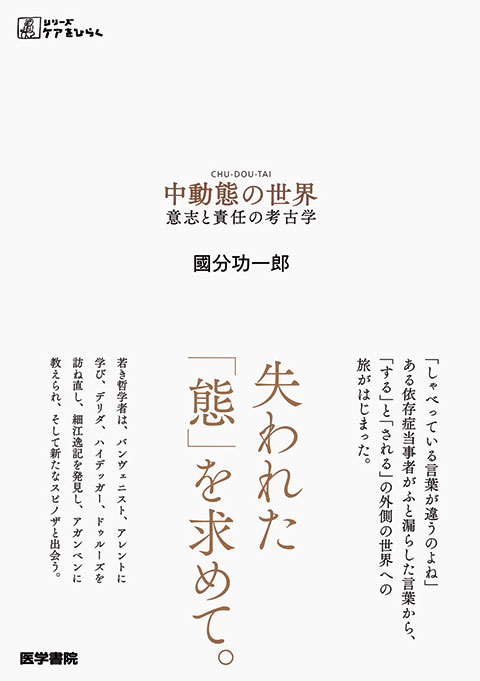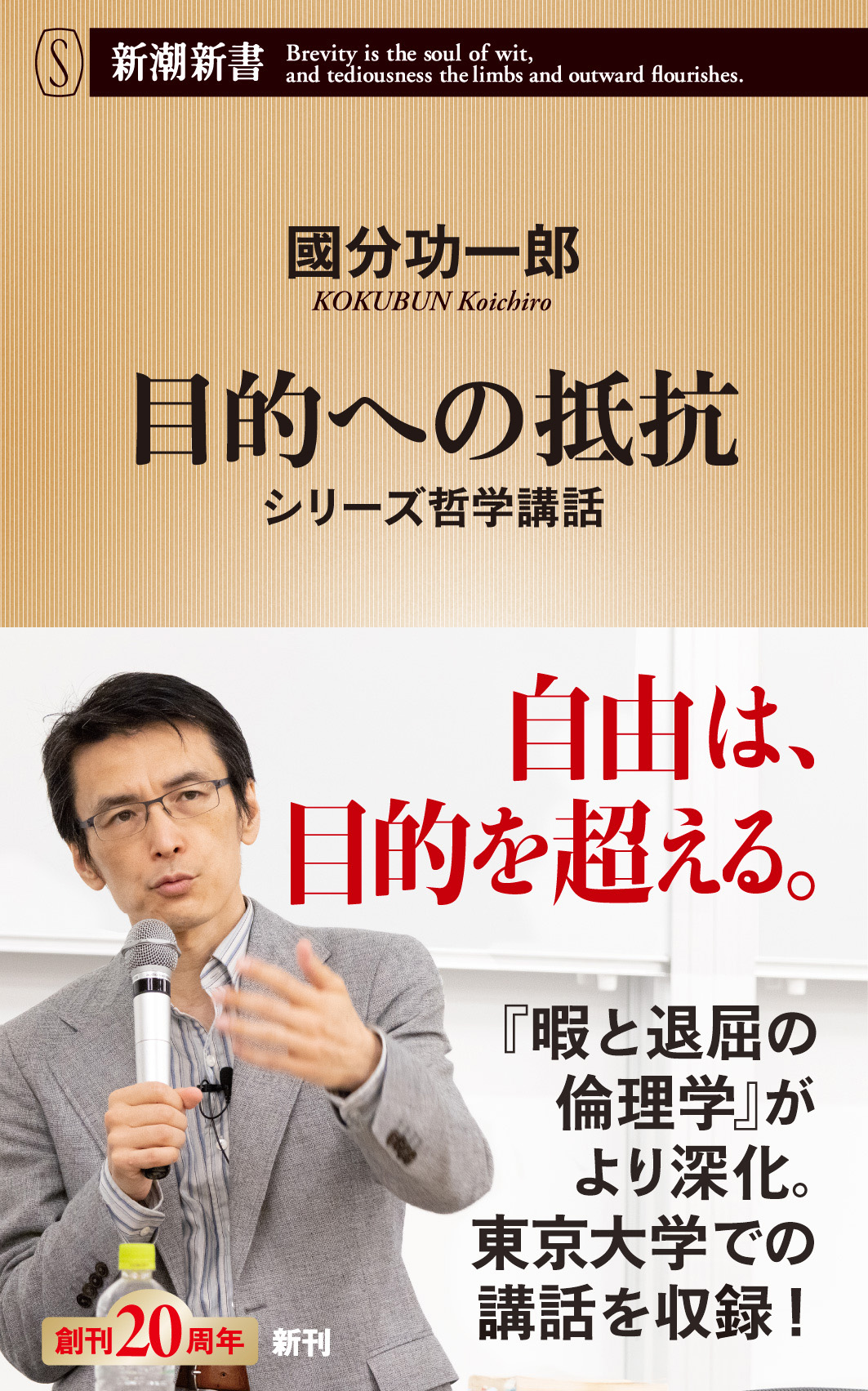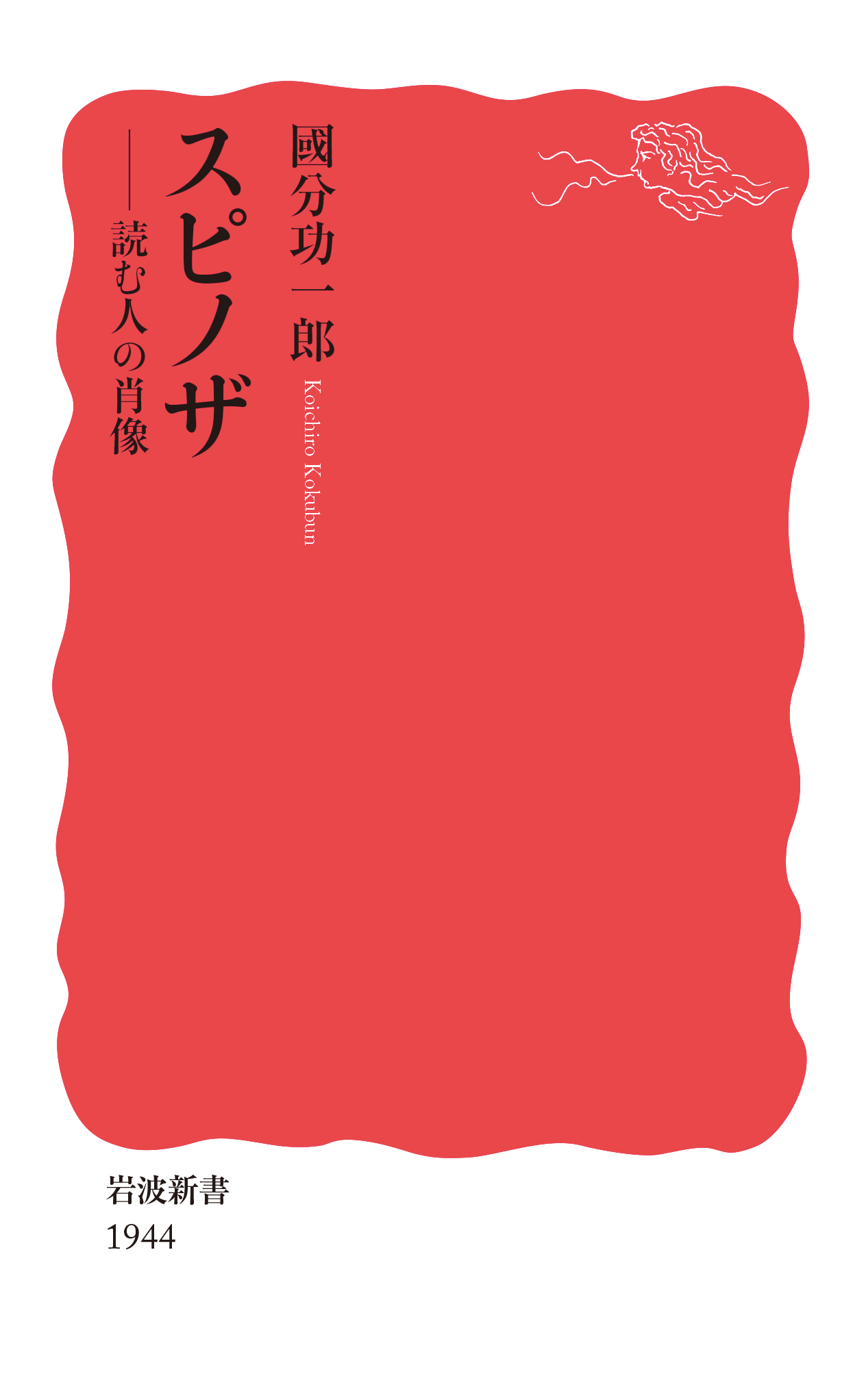
Title
CHU-DOU-TAI no Sekai (The World of the Middle Voice: Archaeology of Will and Responsibility)
Size
344 pages, A5 format
Language
Japanese
Released
April, 2017
ISBN
978-4-260-03157-8
Published by
IGAKU-SHOIN
Book Info
See Book Availability at Library
Japanese Page
This is a book about a certain grammatical category that once existed in the Indo-European languages: the middle voice.
It was more than twenty years ago that I, then still an undergraduate, first came to know of the middle voice. At the time my primary interests lay in the philosophies of Gilles Deleuze, Jacques Derrida, Michel Foucault and others, the group of thinkers who would later come to be known collectively as French Theory, which was very much the style of the day. It was no secret that the works of these thinkers, who sought systematically to question every concept held to be sacrosanct by early modern philosophy (if not by philosophy tout court), were dense and complex, yet I instinctively felt that what they were trying to say could, for the most part, be thematically reformulated under the banner of this concept of the middle voice. We know that the singular difficulty of their philosophies is due to the fact that they are conceptualising the outside of our standard modes of thinking. And is not the contraposition of active and passive, accompanied by the exclusion of the middle, one of the most basic horizons that have shaped the way we (must) think?
Of course I was not thinking in these exact terms at the time, but the intuition has stuck with me through all these years. I must however admit that back then I did not have anything like the requisite theoretical prowess to treat of such an immense thematic.
The time came for me to give voice to my intuition quite suddenly, when I saw that a book I had published in 2011, The Ethics of Leisure and Boredom, was being used to make sense of the mechanisms of alcohol and drug addiction; this in turn gave me the opportunity to speak with people from addiction self-help groups, where I learnt that addiction and the process of recovery therefrom cannot adequately be put into words, in the interior of a language like ours that is dominated by the oppositional categories of the active and passive. ‘To recover is to keep on recovering’: this phrase for example cannot but be misinterpreted within the framework of the active and passive.
To have a fighting chance at writing this book I had to attend weekly classes in ancient Greek. I also read up on any and every study I could find on the middle voice. In the process I was to discover that there are a fair number of researchers who felt the same intuitive pull of the middle voice. They, too, sensed that it would be possible to illuminate the perspective that modern philosophy has been trying to make a clearing for by passing through the middle voice. However, in the vast majority of research a precise knowledge of the relevant grammar and genuine understanding of the history of language were lacking. As a result, the middle voice is gaining, not losing its mystique.
But there is nothing mysterious or mystical about the middle voice. This is a voice that was once used freely in everyday speech by normal people. And yet when we try to approach it it seems to slip through our fingers. Needless to say this is because the opposition of active and passive has become so deeply embedded in our mode of thinking. There is no surer demonstration of this embeddedness than to see that the very researchers who work on the middle voice have consistently attempted to locate it somewhere along the axis of the active-passive. However, in order to define the middle one first has to be rid of the opposition of the active and passive. For this opposition did not exist originarily in the Indo-European languages; prior to it, there was only the opposition of the active and the middle.
It was French linguist Emile Benveniste who proposed a definition of the middle voice grounded in the historical transformations of our language. It is no exaggeration to say that without Benveniste’s work, this book would have been impossible. I sense that the reason he was able to attain such a perspective is because Benveniste’s work was, at the same time as being studies in linguistics, resolutely philosophical. And it was Benveniste’s thinking as a philosopher that enabled him to relativise the inherent prejudices in our, and of course his own mode of thinking.
In this way my research, which began from an in-depth rereading of Benveniste, finally made transit across Hannah Arendt’s concept of the will, eventually arriving at a critique of the concept of the will itself. I will not forget my frenzied reaction when first I learnt that there is no word or concept for ‘will’ in ancient Greek. It is one of the principal theses of this book, that the opposition of active and passive is in cahoots with the concept of will.
I have chosen to subtitle this book ‘the archaeology of will and responsibility’. In it I was able to give an extensive treatment of the concept of will, but I have only succeeded in making small inroads into the concept of responsibility. To critique the will, and from inside of this critique, to re-affirm the concept of responsibility. This is the present direction of my research. What was begun in these pages continues to this day and beyond.
(Written by KOKUBUN Koichiro, Associate Professor, Graduate School of Arts and Sciences / 2020)
Related Info
Kinokuniya Humanities Award 2018 (Grand Prize)
https://www.kinokuniya.co.jp/c/jinbun2018/
The 16th (2017) Kobayashi Hideo Prize (Shinchosha 2017)
https://www.shinchosha.co.jp/prizes/kobayashisho/



 Find a book
Find a book


 eBook
eBook
